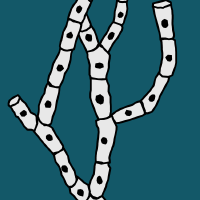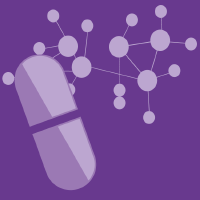Topic Editors


Natural Products to Fight Fungal Infections: An Updated In Silico and In Vivo Investigation
Topic Information
Dear Colleagues,
Fungal infections are a growing global threat as they are becoming increasingly resistant to antifungal drugs, thus resulting in rising hospital costs and mortality. According to World Health Organization (WHO) reports, 19 fungi are on the WHO priority pathogen list, and researchers argue that more research is needed to fight these pathogens. Fungal infections are no longer limited to a single geographical region but have spread globally as a result of global warming, international travel, and trade. Mostly, people with cancer, HIV/AIDS, organ transplants, chronic respiratory disease, tuberculosis infection, etc., have a higher risk of invasive fungal infection. As per the present incidence rate and clinical indications, it is predictable that 10 million people die per year because of emerging multidrug resistant fungal species such as Candida, Aspergillus, Cryptococcus, or Pneumocystis. Therefore, newer regimens are urgently needed to tackle these pathogens. Natural compounds are a suitable alternative to use as monotherapy and combined therapy. Reports show that a large number of natural products (e.g., phytochemicals and marine derived compounds) are effective against various fungal species. Alkaloids, polyphenols, steroids, glycosides, and tarpenoids contain unique chemical fractions that prevent or inhibit infections through the reduction in oxidative stress, inhibition, and enzymatic activation and the modulation of the expression of certain genes. In addition, in silico methods may be effective against a target enzyme, and the present in silico platforms are more reliable to locate the most likely active candidate with limited resources and time. As a result, most pharmaceutical and academic research employ various in silico or bioinformatics tools to identify the most promising candidates at the preliminary stage and then move forward with that potent candidate for further in vitro and in vivo studies. This Topic Issue covers the state of novel treatments related to fungal infections through natural compounds. Mainly, it aims to collect basic and translational discoveries and findings on potential antifungal natural compounds using in silico, in vitro, and in vivo methods. The evaluation and validation of new bioactive molecules against fungal pathogens with multidrug resistance patterns are also welcome. In addition, review manuscripts on the gathering and critical analysis of huge sets or databases on natural products for future antifungal drug development are also opportune to be covered in this Topic Issue.
Dr. Célia Fortuna Rodrigues
Dr. Shasank Sekhar Swain
Topic Editors
Keywords
- fungal infection
- candida
- aspergillus
- cryptococcus
- natural antifungal candidate
- drug resistance
- in silico and in vitro studies
- molecular docking and simulation
- toxicity and pharmacokinetics profiles
Participating Journals
| Journal Name | Impact Factor | CiteScore | Launched Year | First Decision (median) | APC | |
|---|---|---|---|---|---|---|

Biomedicines
|
4.7 | 3.7 | 2013 | 15.4 Days | CHF 2600 | Submit |

Journal of Fungi
|
4.7 | 4.9 | 2015 | 18.4 Days | CHF 2600 | Submit |

Pharmaceuticals
|
4.6 | 4.7 | 2004 | 14.6 Days | CHF 2900 | Submit |

Pharmaceutics
|
5.4 | 6.9 | 2009 | 14.2 Days | CHF 2900 | Submit |

Reports
|
0.9 | - | 2018 | 20.6 Days | CHF 1400 | Submit |

MDPI Topics is cooperating with Preprints.org and has built a direct connection between MDPI journals and Preprints.org. Authors are encouraged to enjoy the benefits by posting a preprint at Preprints.org prior to publication:
- Immediately share your ideas ahead of publication and establish your research priority;
- Protect your idea from being stolen with this time-stamped preprint article;
- Enhance the exposure and impact of your research;
- Receive feedback from your peers in advance;
- Have it indexed in Web of Science (Preprint Citation Index), Google Scholar, Crossref, SHARE, PrePubMed, Scilit and Europe PMC.

